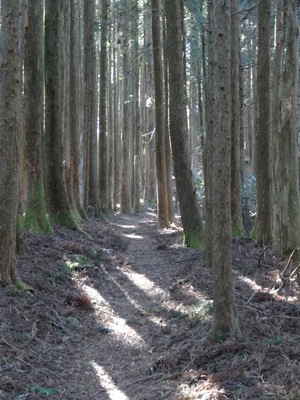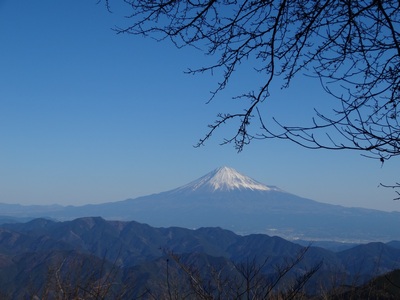Yesterday, I was walking along the ridge of Yakushi-dake (Mt. Yakushi). After an hour’s climb the path had leveled out. The sunlight was flickering here and there among the cedar trunks–and all of a sudden I was wondering if the good feeling (dare we say exhiliration???) was all that different from what Mr. Thoreau felt all those years ago tramping about the woods surrounding Walden Pond. I’m guessing it was pretty much the same.
Today I was reading an article from the The New York Times, “The Great War’s Ominous Echoes,” which discussed how we had best keep attuned to the lessons of history. No joke. “History, in the saying attributed to Mark Twain,” the article declares, “never repeats itself but it rhymes.” Yeah, I thought I’d heard something like that before.
History at least rhymes. But of course. Beause we retain individual desire, group desire, but simultaneously, the ability to listen to the “better” angels. Am I allowed, in the 21st century, to talk about better angels? Regardless, I will!
But back to Thoreau. What a time that was, the twenty or thirty years leading up to the American Civil War! There were those trying to escape the burden of trying religious doctrine (those angry with Puritan hypocrisy and/or angry with the angry Calvinistic God). There were those trying to save a society–one which defined itself as a model of liberty and justice (a self-proclaimed beacon to the world, “a city on a hill”)–from its promulgation of a system (slavery) that blatantly mocked all that society supposedly stood for. There were those amidst all the self-interest (yes, yes, nothing new, nothing old, not always bad) . . . amidst all the self-interest and crisis in belief, who still believed in the possibility of belief, who sensed there might just be worse guides than intuition and individual conscience, and who could thus believe that there might be something to be gained from taking a walk in the woods and at least contemplating the possibility that one could establish and “enjoy an original relation to the universe.”
And what an extraordinary five years in (American) literature we saw: The Scarlet Letter (1850), Moby-Dick (1851), Uncle Tom’s Cabin (1852), Walden (1854). Throw in Charles Dickens’s Bleak House (1853 . . . yes, yes, British), and you could have a lot worse liberal-arts-college, introduction-to-the-human-experience introductory course.
Sometimes you see Fuji, sometimes you don’t.
Sometimes, you park your car under a ginko tree, ablaze in sunlight, a brilliant, warming yellow gleam in the eye of the mountain. Sometimes, your timing’s off. You find the limbs bare, the leaves in the road, wet, fading fast.
Of course, you can imagine any fallen ginko leaf at its brightest–and whether you do or you don’t, the sun will remain “a morning star.”


